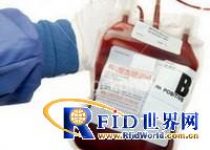
Blood bag/vaccine management solution
[ad_1]

Main application: RFID medicine
An Introduction:
1. System background
Blood can solve a large number of medical problems, and it is also a channel for the spread of many diseases. Diseases caused and spread due to blood infection, such as AIDS, hepatitis B, hepatitis C, etc., and many problems are caused by irregular blood collection, confusion in blood storage and use, etc. Therefore, blood management is a work that cannot be made wrong, but many of them are irresistible factors. Therefore, it is imperative to ensure blood safety and strengthen blood management.
2. System overview
Use RFID (Radio Frequency Identification) for scientific management to realize information interaction and processing. In the process of blood collection, storage, transportation and use, RFID technology and computer technology are used to monitor the quality in real time, so that the entire industry chain is clear and transparent, free from pollution, and the quality is monitored and interconnected in real time, realizing blood management. Informatization, improve work efficiency, and implement scientific and safe blood management.
Three, the system process
First, register the blood donors. After the physical examination, perform a blood test, and then confirm that there is no problem, perform blood collection, put each bag of qualified blood on a corresponding RFID tag, and perform blood tracking, including the blood stored in the warehouse. The placement and status, including the transfer with other blood banks, or the use by the hospital, are always tracking the unique RFID tag.
Four, system function
1) Reduce blood pollution
The system uses RFID non-contact radio frequency identification technology, which eliminates manual contact and reduces blood pollution. Effectively ensure the safety of blood use.
2) Realize scientific blood information management
There are a lot of data and information involved in a series of links from blood collection, to storage, and finally to the use of blood, including the data of the donor, the type of blood, the time of blood collection, and the person who handles the blood management. Bringing certain difficulties, coupled with the particularity of blood, the easy deterioration of blood and the safety of blood use. The use of RFID tags can record the information of each link in real time, effectively avoiding errors caused by human errors.
3) Automatic reminder of the validity period
When the blood is stored in the storage, set the validity period of the blood. When the blood is not used for a long time, if the validity period is reached, the system will automatically alarm to remind the validity period has expired, and then the staff can quickly find the location of the blood and process it, and the time setting can be free set up.
4) Multi-label recognition to improve work efficiency
After affixing RFID tags to each bag of blood, multi-tag identification can be performed by the cooperation of RFID reader and antenna, eliminating the need for manual input or manual recording in the computer, and the data can be transmitted to the system management center in real time after identification. , Centralized management, reduce errors, and predictably improve work efficiency.
5) Real-time tracking management
RFID technology can effectively solve the situation of blood storage and transportation, real-time monitoring of quality, and management of the whole process from blood collection to patient use. The RFID tag is affixed after collection. The tag contains all blood information. From then on, blood tracking starts, whether the blood is in the warehouse, or the transfer library, until the final patient use, the whole process can be tracked.
[ad_2]



